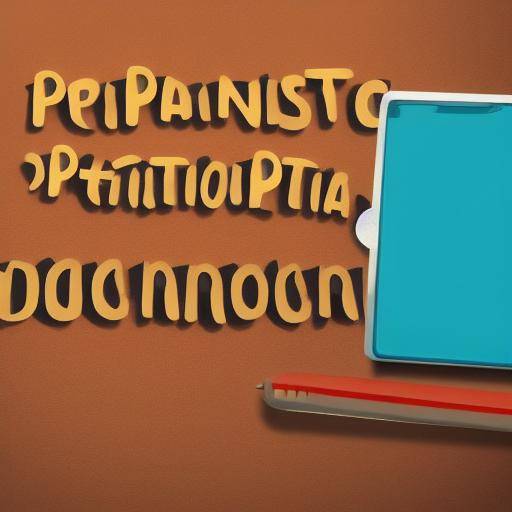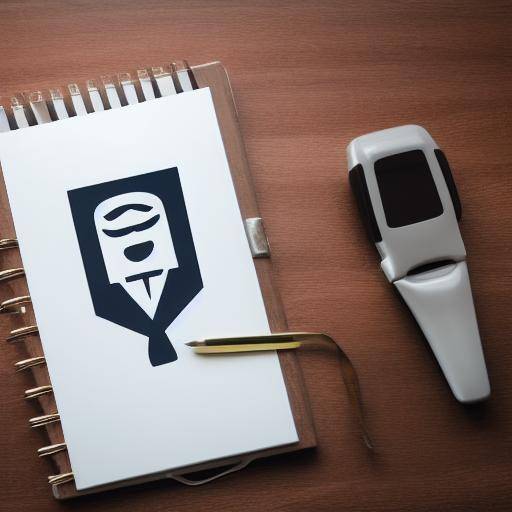
Introduction
Self-evaluation and self-control are two fundamental aspects for the personal, emotional and professional development of any individual. The ability to analyze our own thoughts, emotions and actions allows us to take control of our life, improve our skills and achieve our goals. In this article, we will explore in depth the importance of self-assessment in the development of self-control, providing valuable information, practical examples and advice for the reader interested in improving his well-being and performance.
History and Background
Self-evaluation has been an integral part of various philosophical and spiritual traditions throughout history. From the teachings of the ancient Greek philosophers to meditation practices in Eastern cultures, internal reflection as a means of understanding oneself has been a constant in the pursuit of personal development.
In the psychological field, self-evaluation has experienced a growing interest as science has deepened the understanding of the human mind. Over the centuries, various theorists and psychologists have contributed to the study of self-assessment, providing new perspectives and tools for their practical application.
In parallel, the concept of self-control has been studied in multiple disciplines, from psychology and neuroscience to philosophy and education. Over time, it has increasingly been recognized as a crucial skill for personal and professional success, especially in a world marked by constant stimuli and distractions.
Detailed Analysis
Self-assessment, understood as the process of examining and evaluating our own thoughts, emotions and behaviors, brings many benefits to the individual. By becoming aware of our strengths and areas of improvement, we can guide our actions towards a more effective and coherent development with our values and objectives. Self-assessment also allows us to identify patterns of thought or behavior that may be limiting our personal growth, giving us the opportunity to make positive changes in our lives.
However, self-evaluation can also present significant challenges. Sometimes, we can be self-critical over or experience difficulties in objectively assessing our own situation. This may result in a deterioration of self-esteem or generate feelings of frustration. However, in developing self-consciousness and self-understanding skills, we can overcome these obstacles and use self-evaluation as a tool of growth and personal overcoming.
Exhaustive examination
The effective application of self-assessment in the development of self-control translates into the ability to regulate our emotions, thoughts and behaviors consciously and directed towards specific goals. By being aware of our own reactions and trends, we can implement strategies that enable us to handle challenging situations with clarity and composure.
It is important to note that self-control does not imply repressing or denying emotions, but rather understanding and channeling them constructively. Through self-assessment, we can identify what triggers certain emotional responses or impulses, which gives us the opportunity to intervene proactively. This has a significant impact not only on our own emotional stability, but also on our interpersonal relationships and on our ability to face stress situations.
Comparative analysis
The relationship between self-evaluation, self-control and personal development is intrinsic. Self-assessment allows us to identify specific areas in which self-control is fundamental to our growth, while the development of self-control requires a clear understanding of our own motivations, strengths and weaknesses. In this regard, self-assessment becomes a fundamental pillar for personal development by providing the knowledge necessary to exercise effective and constructive self-control in our daily lives.
Practical Tips & Actions Apo## Practical Tips & Applicable Actions
- Practice Self-observation: Give regular time to reflect on your thoughts, emotions and behaviors. Keep a personal journal to record these observations, which will allow you to identify patterns and trends over time.
- Establish Targets Claras: Use self-evaluation to identify specific areas where you want to develop your self-control. Establish clear and achievable goals that allow you to work systematically on your personal growth.
- Practice full care: The regular practice of full attention, through meditation or other techniques, can strengthen both self-evaluation and self-control. Full attention helps you to be aware of your thoughts and emotions, which in turn gives you greater control over your responses.
- Search Construction Feedback: Find the feedback of trusted people in your environment. Your external perspectives can complement your self-assessment by providing valuable information that can be easy to overlook.
- Learning from Experience: Take advantage of challenging situations as opportunities to practice self-control. Reflect on these experiences and identify which strategies were effective and which could be improved.
- Develop Resilience: Recognizes that the process of self-assessment and self-control development involves constant learning. Cultivating resilience will allow you to face obstacles with greater strength and perseverance.
Ideas and Industry Reviews
Elena García, Clinical Psychologist
"Self-assessment is a powerful tool for the development of self-control. By understanding our own motivations and behaviors, we can implement strategies that enable us to positively regulate our emotional and cognitive responses. "
Juan Pérez, Coach de Desarrollo Personal
"In my experience, self-assessment is the cornerstone to really understand and improve self-control. Awareness of our trends and behavior patterns allows us to proactively intervene and transform our approach to situations. "
Cases and Real Applications
Professional development
Carlos, a sales executive, noticed that his impatience in the negotiations was affecting his relations with the clients. Through self-assessment, he identified that his impatience was the product of an underlying fear of losing the opportunity to close a deal. In understanding this dynamic, he implemented strategies to control his emotional response and managed to significantly improve his sales performance.
Education
Mary, a primary teacher, faced difficulties in maintaining discipline in her classroom. Through self-assessment, he identified that his frustration at disorder caused impulsive emotional responses. It developed its self-control through the practice of full attention and emotional regulation, resulting in a more harmonious and learning-focused environment.
Future Trends and Predictions
As awareness of the importance of emotional intelligence and personal development continues to grow, it is expected that the integration of self-evaluation and self-control as fundamental tools in the educational and labour sphere will increase significantly. In the context of a society marked by uncertainty and change, these skills become increasingly relevant to individual well-being and professional success.
Conclusions and FAQs
Conclusions
In short, self-evaluation plays a key role in the development of self-control and ultimately in personal growth. By cultivating the ability to reflect on our own experiences and emotions, we can strengthen our ability to regulate our responses and behaviors in a conscious and constructive way.
FAQs
What is the difference between self-evaluation and self-control?
Self-assessment refers to the process of critically analyzing our thoughts, emotions and behaviors, while self-control implies the ability to consciously regulate our emotional and behavioral responses based on that self-assessment.
How can I improve my self-assessment capacity?
The improvement of self-evaluation begins with the regular practice of conscious reflection. Maintaining a personal journal, seeking external feedback and practicing full attention are effective ways to strengthen this ability.
What role does self-evaluation play in professional development?
Self-assessment is fundamental to professional growth, as it allows individuals to identify their strengths and areas of improvement, which in turn allows them to develop effective strategies to improve their performance and achieve their professional goals.
What are some practical examples of self-control in the working environment?
Self-control in the working environment can be manifested in situations that require emotional management, such as conflict management, pressure decision-making and time management. These skills are fundamental to professional success.
Can self-evaluation have an impact on personal relationships?
Absolutely. Self-assessment can improve communication, empathy and conflict resolution in personal relationships, as it allows individuals to understand their own behavior patterns and promotes a greater understanding of the perspectives of others.
Is it possible to develop self-control in stressful situations?
Yes, the development of self-control in stressful situations is feasible through conscious practice, emotional regulation and early planning. Self-evaluation is the first crucial step in this process.
In conclusion, self-evaluation is an invaluable tool for the development of self-control and personal growth in multiple aspects of life. By understanding ourselves more deeply, we can exercise greater control over our emotions, thoughts and actions, which in turn allows us to prosper in the challenges we face.






















































